Editorial Board
Our Editorial Board Members are active researchers recognized as experts in their field. They handle manuscripts within their areas of expertise, overseeing all aspects of the peer review process from submission to acceptance. Editorial Board Members work closely with our in-house editors to ensure that all manuscripts are subject to the same editorial standards and journal policies. To learn more about our collaborative editorial model, read this October 2019 editorial from our sister journal Communications Biology.
It is the goal of Communications Engineering to work with and for the engineering communities. Our Editorial Board Members play an important role in developing the journal so that it addresses the specific publishing needs of all engineers.
Emanuela Bosco, PhD, University of Eindhoven, Netherlands
orcid.org/0000-0003-1985-2150
Research areas: multi-scale mechanics, multi-physics problems, fibrous materials, granular materials, degradation of cultural heritage materials, damage and fracture
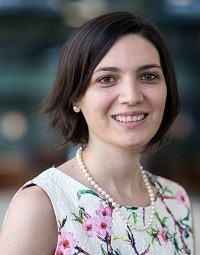 Emanuela Bosco is an Associate Professor in the Chair of Applied Mechanics at the Eindhoven University of Technology (TU/e). Her research focuses on multi-scale and multi-physics problems, including damage and fracture, the mechanics of fibrous and granular materials, cement degradation, and the mechanics of cultural heritage objects. Emanuela obtained her Ph.D. in Numerical Methods for Engineering from the University of Brescia (Italy) in 2013. Subsequently, she joined TU/e as a postdoc in the Mechanics of Materials group. She has spent different research periods abroad, at the Oak Ridge National Laboratory and MIT, USA. In 2017 and 2022, she was awarded two personal research grants (VENI and a VIDI) from the Dutch Research Council (NWO). She is also the project leader in other NWO projects. In addition, she has been the technical manager and WP coordinator in the European Project Horizon 2020 CollectionCare. Emanuela holds a Music-Diploma in Viola, obtained at the Conservatorium Marenzio in Brescia, Italy.
Emanuela Bosco is an Associate Professor in the Chair of Applied Mechanics at the Eindhoven University of Technology (TU/e). Her research focuses on multi-scale and multi-physics problems, including damage and fracture, the mechanics of fibrous and granular materials, cement degradation, and the mechanics of cultural heritage objects. Emanuela obtained her Ph.D. in Numerical Methods for Engineering from the University of Brescia (Italy) in 2013. Subsequently, she joined TU/e as a postdoc in the Mechanics of Materials group. She has spent different research periods abroad, at the Oak Ridge National Laboratory and MIT, USA. In 2017 and 2022, she was awarded two personal research grants (VENI and a VIDI) from the Dutch Research Council (NWO). She is also the project leader in other NWO projects. In addition, she has been the technical manager and WP coordinator in the European Project Horizon 2020 CollectionCare. Emanuela holds a Music-Diploma in Viola, obtained at the Conservatorium Marenzio in Brescia, Italy.
Lab webpage
Yu-Cheng Chen, PhD, Nanyang Technological University, Singapore
orcid.org/0000-0002-0008-5601
Research areas: biophotonics; nanophotonics; optical sensors; microlasers
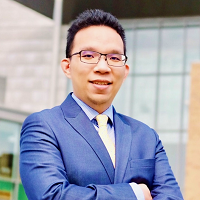 Dr. Yu-Cheng Chen is currently an assistant professor at School of Electrical and Electronics Engineering and in Nanyang Technological University, Singapore. He received a Ph.D degree in Biomedical Engineering from the University of Michigan, Ann Arbor in 2017 and worked as a postdoctoral fellow at the Michigan Center for Integrative Research in Critical Care before he joined Singapore. His research focused mainly on the development of novel photonic sensors, optical microcavity, biophotonics, bioimaging, and on-chip laser devices. He has already published more than 60 top journals and proceedings, which are widely reported by more than 200 media outlets worldwide. Being as the pioneer in the field of biolasers, Dr. Chen’s research group is devoted in inventing novel mechanisms to achieve tiny lasers with programmable and bio-intelligent functions for on-chip disease diagnosis, neuro-analysis, and cancer detection.
Dr. Yu-Cheng Chen is currently an assistant professor at School of Electrical and Electronics Engineering and in Nanyang Technological University, Singapore. He received a Ph.D degree in Biomedical Engineering from the University of Michigan, Ann Arbor in 2017 and worked as a postdoctoral fellow at the Michigan Center for Integrative Research in Critical Care before he joined Singapore. His research focused mainly on the development of novel photonic sensors, optical microcavity, biophotonics, bioimaging, and on-chip laser devices. He has already published more than 60 top journals and proceedings, which are widely reported by more than 200 media outlets worldwide. Being as the pioneer in the field of biolasers, Dr. Chen’s research group is devoted in inventing novel mechanisms to achieve tiny lasers with programmable and bio-intelligent functions for on-chip disease diagnosis, neuro-analysis, and cancer detection.
Lab webpage
Wan-Ting (Grace) Chen, PhD, University of Massachussetts at Lowell, USA
orcid.org/0000-0003-2294-1461
Research areas: Chemical recycling of plastic waste into fuels, polymers, and chemicals; Biofuel and biodegradable plastic material development; Microplastic pollution mitigation; Green solvent formulation.
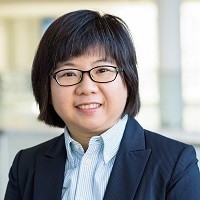 Wan-Ting (Grace) Chen is an assistant professor in the department of Plastics Engineering at the University of Massachusetts Lowell (UMass Lowell), where she directs the Plastics & Environment Research Laboratory. Grace received her B.Sc in Chemical Engineering from National Taiwan University, M.S. and Ph.D. in Agricultural and Biological Engineering from the University of Illinois at Urbana-Champaign, a postdoctoral training in Chemical Engineering from Purdue University. Her research group has extensive experience in the sustainability area. Prof. Chen’s current research focuses on four topics: 1) Chemical recycling of plastic waste into fuels, polymers, and chemicals, 2) Biofuel and biodegradable plastic material development, 3) Microplastic pollution mitigation, and 4) green solvent formulation. Her lab is equipped with reactors for hydrothermal processing of plastic waste and biowaste, as well as characterizations for fuel/polymers/thin films/microplastics. In addition, her lab also has a license to a specialized software, Hansen Solubility Parameters in Practice (HSPiP), to study polymer dissolution/precipitation behavior, coating removal, polymer diffusion, and packaging failure mechanisms. The Chen Group’s research program contributes to the development of new multi-disciplinary materials on the topic of plastic waste recycling, biobased/biodegradable plastic material, microplastics and safer solvents design. Prof. Chen is affiliated with American Institute of Chemical Engineers (AIChE), American Chemical Society (ACS), Society of Plastics Engineers (SPE), and American Society of Agricultural & Biological Engineers (ASABE). To date, she has published 30+ peer-reviewed articles, one book chapter, and one U.S. patent, with a total citation of 1800+ and an H-index of 21.
Wan-Ting (Grace) Chen is an assistant professor in the department of Plastics Engineering at the University of Massachusetts Lowell (UMass Lowell), where she directs the Plastics & Environment Research Laboratory. Grace received her B.Sc in Chemical Engineering from National Taiwan University, M.S. and Ph.D. in Agricultural and Biological Engineering from the University of Illinois at Urbana-Champaign, a postdoctoral training in Chemical Engineering from Purdue University. Her research group has extensive experience in the sustainability area. Prof. Chen’s current research focuses on four topics: 1) Chemical recycling of plastic waste into fuels, polymers, and chemicals, 2) Biofuel and biodegradable plastic material development, 3) Microplastic pollution mitigation, and 4) green solvent formulation. Her lab is equipped with reactors for hydrothermal processing of plastic waste and biowaste, as well as characterizations for fuel/polymers/thin films/microplastics. In addition, her lab also has a license to a specialized software, Hansen Solubility Parameters in Practice (HSPiP), to study polymer dissolution/precipitation behavior, coating removal, polymer diffusion, and packaging failure mechanisms. The Chen Group’s research program contributes to the development of new multi-disciplinary materials on the topic of plastic waste recycling, biobased/biodegradable plastic material, microplastics and safer solvents design. Prof. Chen is affiliated with American Institute of Chemical Engineers (AIChE), American Chemical Society (ACS), Society of Plastics Engineers (SPE), and American Society of Agricultural & Biological Engineers (ASABE). To date, she has published 30+ peer-reviewed articles, one book chapter, and one U.S. patent, with a total citation of 1800+ and an H-index of 21.
Lab webpage
Irene Dedoussi, PhD, TU Delft, Netherlands
orcid.org/0000-0002-8966-9469
Research areas: Sustainable aviation, Combustion emissions, Environmental impacts, Alternative fuels, Systems design, Numerical modelling
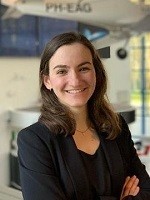 Dr Irene Dedoussi is an Associate Professor in the Faculty of Aerospace Engineering of TU Delft, and a Research Affiliate of the Laboratory for Aviation and the Environment at MIT. Her research focuses on the environmental impacts of emissions from aviation and other energy and transportation sectors. Dr Dedoussi’s work aims to help make informed engineering, systems design, and operational and policy choices towards the sustainable growth of these sectors. Dr Dedoussi obtained her PhD in Aeronautics and Astronautics from MIT. She also holds an SM from MIT, and an MEng (Hons with Distinction) and a BA (Hons) in Engineering from the University of Cambridge.
Dr Irene Dedoussi is an Associate Professor in the Faculty of Aerospace Engineering of TU Delft, and a Research Affiliate of the Laboratory for Aviation and the Environment at MIT. Her research focuses on the environmental impacts of emissions from aviation and other energy and transportation sectors. Dr Dedoussi’s work aims to help make informed engineering, systems design, and operational and policy choices towards the sustainable growth of these sectors. Dr Dedoussi obtained her PhD in Aeronautics and Astronautics from MIT. She also holds an SM from MIT, and an MEng (Hons with Distinction) and a BA (Hons) in Engineering from the University of Cambridge.
Personal webpage
Danielle Densley Tingley, PhD, University of Sheffield, UK
orcid.org/0000-0002-2477-7629
Research areas: Circular Economy, Embodied Carbon, Built Environment, Buildings, Sustainability, Retrofit
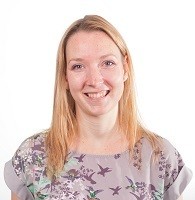 Danielle is a Senior Lecturer in the Department of Civil and Structural Engineering at the University of Sheffield, UK. She is a Director of the Urban Flows Observatory, leading research on understanding the use and stock of resources in cities. She is the principal investigator of the EPSRC funded grant 'multi-scale, circular economic potential of the non-residential building stock and the co-creator of regenerate - a tool that explores 'how circular is my building' - in order to engage design teams to embed circular economy strategies into building design. Danielle is passionate about reducing the impact of the built environment on the planet. She particularly focuses on methods to reduce the demand for new material use, e.g. through increased retrofit to extend building lifetimes and reduce operational carbon, as well as applying circular economy principles to new built environment design.
Danielle is a Senior Lecturer in the Department of Civil and Structural Engineering at the University of Sheffield, UK. She is a Director of the Urban Flows Observatory, leading research on understanding the use and stock of resources in cities. She is the principal investigator of the EPSRC funded grant 'multi-scale, circular economic potential of the non-residential building stock and the co-creator of regenerate - a tool that explores 'how circular is my building' - in order to engage design teams to embed circular economy strategies into building design. Danielle is passionate about reducing the impact of the built environment on the planet. She particularly focuses on methods to reduce the demand for new material use, e.g. through increased retrofit to extend building lifetimes and reduce operational carbon, as well as applying circular economy principles to new built environment design.
Personal webpage
Zhijie (Sasha) Dong, PhD, University of Houston, USA
orcid.org/0000-0003-0979-812X
Research areas: transportation and logistics, optimization, machine learning, emergency management
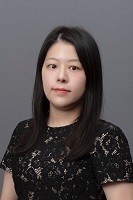 Dr. Zhijie (Sasha) Dong is currently an associate professor of supply chain at the University of Houston. She received her Ph.D. degree from Cornell University (2015), M.S. degree from Columbia University (2012), and B.S. degree from Nanjing University (2011). She once worked at CSX Railway, FedEx, and Texas State University. Dr. Dong’s current research focus is on improving the efficiency of transportation and supply chain systems using machine learning and optimization. Her research has been sponsored by different agencies, including the National Science Foundation (NSF), Federal Highway Administration, Texas Department of Transportation as well as Material Handling Institute. Dr. Dong’s work has been recognized by international and national awards, including several Institute of Industrial and Systems Engineers (IISE) annual conference best paper awards. She is the recipient of the NSF Computer and Information Science and Engineering (CISE) Research Initiation Initiative (CRII) Award (known as mini-CAREER), and INFORMS MIF Early Career Award; and was selected as the NSF Operations and Systems Engineering Extreme Events Research (OSEEER) Early Career Mentoring (ECM) Program Fellow. She is now a IISE senior member.
Dr. Zhijie (Sasha) Dong is currently an associate professor of supply chain at the University of Houston. She received her Ph.D. degree from Cornell University (2015), M.S. degree from Columbia University (2012), and B.S. degree from Nanjing University (2011). She once worked at CSX Railway, FedEx, and Texas State University. Dr. Dong’s current research focus is on improving the efficiency of transportation and supply chain systems using machine learning and optimization. Her research has been sponsored by different agencies, including the National Science Foundation (NSF), Federal Highway Administration, Texas Department of Transportation as well as Material Handling Institute. Dr. Dong’s work has been recognized by international and national awards, including several Institute of Industrial and Systems Engineers (IISE) annual conference best paper awards. She is the recipient of the NSF Computer and Information Science and Engineering (CISE) Research Initiation Initiative (CRII) Award (known as mini-CAREER), and INFORMS MIF Early Career Award; and was selected as the NSF Operations and Systems Engineering Extreme Events Research (OSEEER) Early Career Mentoring (ECM) Program Fellow. She is now a IISE senior member.
Personal webpage
Manabu Fujii, PhD, Tokyo Institute of Technology, Japan
orcid.org/0000-0001-7319-6014
Research areas: Environmental Engineering, Water Treatment, Environmental Conservation, Sustainable Development
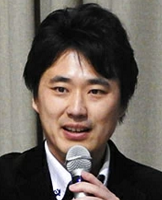 Manabu Fujii is an Associate Professor at the Department of Civil and Environmental Engineering, School of Environment and Society, Tokyo Institute of Technology, Japan. He received his doctoral degree from the Department of Civil Engineering, Graduate School of Engineering, Tohoku University in 2007 for his research on the trace metal dynamics in environmental waters. After he worked as a postdoctoral fellow of the Japanese Society for the Promotion of Science (JSPS, PD) for three years at Tohoku University and University of New South Wales, Australia, he moved to an Assistant Professor position at Tokyo Institute of Technology. Since 2015, he has been working as an Associate Professor at Tokyo Institute of Technology and visiting faculty member at Egypt-Japan University of Science and Technology (E-JUST, Egypt). His primary research interests include water science and engineering such as development of sustainable water and wastewater treatment technologies and the characterization of affected water environment, which are particularly relevant to SDG 6, SDG 11 and SDG14.
Manabu Fujii is an Associate Professor at the Department of Civil and Environmental Engineering, School of Environment and Society, Tokyo Institute of Technology, Japan. He received his doctoral degree from the Department of Civil Engineering, Graduate School of Engineering, Tohoku University in 2007 for his research on the trace metal dynamics in environmental waters. After he worked as a postdoctoral fellow of the Japanese Society for the Promotion of Science (JSPS, PD) for three years at Tohoku University and University of New South Wales, Australia, he moved to an Assistant Professor position at Tokyo Institute of Technology. Since 2015, he has been working as an Associate Professor at Tokyo Institute of Technology and visiting faculty member at Egypt-Japan University of Science and Technology (E-JUST, Egypt). His primary research interests include water science and engineering such as development of sustainable water and wastewater treatment technologies and the characterization of affected water environment, which are particularly relevant to SDG 6, SDG 11 and SDG14.
Lab webpage
Carmine Galasso, PhD, University College London, UK
orcid.org/ 0000-0001-5445-4911
Research areas: Catastrophe Risk Engineering, Civil and Structural Engineering, Uncertainty Modelling and Quantification
 Dr Carmine Galasso is the Professor of Catastrophe Risk Engineering in the University College London (UCL)’s Department of Civil, Environmental & Geomatic Engineering, UK. Before joining UCL, Carmine worked as a Catastrophe Risk Modeler at Applied Insurance Research (AIR) Worldwide, San Francisco, USA; and as a Postdoctoral Research Associate in the Department of Civil and Environmental Engineering at the University of California, Irvine, USA. He earned his MSc in Engineering Management (2007) and his PhD in Earthquake Engineering (2011) from the Università degli Studi di Napoli Federico II, Italy. Carmine’s research focuses on developing and applying probabilistic and statistical methods and computational/digital tools for catastrophe risk engineering and disaster risk reduction. He is investigating risks to building portfolios and infrastructure exposed to multiple natural hazards, including earthquakes, strong wind, and flooding, with particular emphasis on low-income countries and community-based infrastructure (schools, hospitals, heritage assets). The ultimate goal is to provide society with a sustainable, safer, and more resilient built environment through new engineering research and solutions. Carmine’s research is mainly funded by the UK Research Councils, the European Commission, the British Council, the World Bank and its Global Facility for Disaster Reduction and Recovery, the Motorola Solution Foundation, and the Willis Research Network. Carmine is a key investigator of the newly funded £20M Global Challenges Research Fund Urban Disaster Risk Hub by UK Research and Innovation, where he leads a Risk Working Group. The Hub works in a number of cities in the Global South, collaborating with local, national, and global organizations to strengthen disaster risk governance by undertaking integrated, multi-scale and cross-disciplinary research to better understand natural multi-hazard risk and its drivers.
Dr Carmine Galasso is the Professor of Catastrophe Risk Engineering in the University College London (UCL)’s Department of Civil, Environmental & Geomatic Engineering, UK. Before joining UCL, Carmine worked as a Catastrophe Risk Modeler at Applied Insurance Research (AIR) Worldwide, San Francisco, USA; and as a Postdoctoral Research Associate in the Department of Civil and Environmental Engineering at the University of California, Irvine, USA. He earned his MSc in Engineering Management (2007) and his PhD in Earthquake Engineering (2011) from the Università degli Studi di Napoli Federico II, Italy. Carmine’s research focuses on developing and applying probabilistic and statistical methods and computational/digital tools for catastrophe risk engineering and disaster risk reduction. He is investigating risks to building portfolios and infrastructure exposed to multiple natural hazards, including earthquakes, strong wind, and flooding, with particular emphasis on low-income countries and community-based infrastructure (schools, hospitals, heritage assets). The ultimate goal is to provide society with a sustainable, safer, and more resilient built environment through new engineering research and solutions. Carmine’s research is mainly funded by the UK Research Councils, the European Commission, the British Council, the World Bank and its Global Facility for Disaster Reduction and Recovery, the Motorola Solution Foundation, and the Willis Research Network. Carmine is a key investigator of the newly funded £20M Global Challenges Research Fund Urban Disaster Risk Hub by UK Research and Innovation, where he leads a Risk Working Group. The Hub works in a number of cities in the Global South, collaborating with local, national, and global organizations to strengthen disaster risk governance by undertaking integrated, multi-scale and cross-disciplinary research to better understand natural multi-hazard risk and its drivers.
Lab webpage
Yasaman Ghasempour, PhD, Princeton University, USA
Research areas: Wireless systems, Wireless security, Terahertz , millimeter-wave
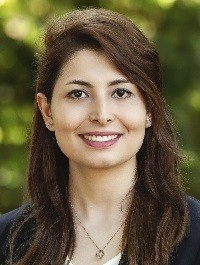 Yasaman Ghasempour is an Assistant Professor of Electrical and Computer Engineering at Princeton University. She received her Ph.D. and master’s degree from Rice University and her bachelor's degree from the Sharif University of Technology. Yasaman is the recipient of the NSF CAREER Award (2022), the 2020 Marconi Young Scholar Award, and the Excellence in Teaching Award (Princeton SEAS). Yasaman is listed as one of 10 stars worldwide in Computer Networking and Communications in 2022. Her group is focused on next-generation wireless networks and sensing systems, including novel devices and protocols for millimeter-wave and terahertz WLANs.
Yasaman Ghasempour is an Assistant Professor of Electrical and Computer Engineering at Princeton University. She received her Ph.D. and master’s degree from Rice University and her bachelor's degree from the Sharif University of Technology. Yasaman is the recipient of the NSF CAREER Award (2022), the 2020 Marconi Young Scholar Award, and the Excellence in Teaching Award (Princeton SEAS). Yasaman is listed as one of 10 stars worldwide in Computer Networking and Communications in 2022. Her group is focused on next-generation wireless networks and sensing systems, including novel devices and protocols for millimeter-wave and terahertz WLANs.
Lab webpage
Inge Herrmann, PhD, ETH Zurich, Switzerland
orcid.org/0000-0002-3018-6796
Research areas: Materials Innovation, Biomedical Engineering, Advanced Analytics, Process Engineering
 Inge Herrmann is a chemical engineer with additional training in (pre)clinical research. After graduating with a PhD from ETH Zurich, she underwent further training at the University Hospital Zurich (USZ), the University of Illinois (US) and the Imperial College London (UK). Since 2015, she is heading a research group at Empa specialized on nanoscale materials and devices for healthcare. In 2019, Inge Herrmann joined the Department of Mechanical and Process Engineering at ETH Zurich where she is heading the Nanoparticle Systems Engineering Lab. She is an expert in nanoparticle synthesis and characterization, spectromicroscopy and translational nanomedicine. She has spearheaded several translational nanomedicine projects, and serves as a scientific advisor of the spin-off companies hemotune, anavo and veltist commercializing technologies emerging from her lab.
Inge Herrmann is a chemical engineer with additional training in (pre)clinical research. After graduating with a PhD from ETH Zurich, she underwent further training at the University Hospital Zurich (USZ), the University of Illinois (US) and the Imperial College London (UK). Since 2015, she is heading a research group at Empa specialized on nanoscale materials and devices for healthcare. In 2019, Inge Herrmann joined the Department of Mechanical and Process Engineering at ETH Zurich where she is heading the Nanoparticle Systems Engineering Lab. She is an expert in nanoparticle synthesis and characterization, spectromicroscopy and translational nanomedicine. She has spearheaded several translational nanomedicine projects, and serves as a scientific advisor of the spin-off companies hemotune, anavo and veltist commercializing technologies emerging from her lab.
Lab webpage
Chaoran Huang, PhD, Chinese University of Hong Kong, China
orcid.org/0000-0001-6997-758X
Research areas: Optical computing and signal processing, integrated photonic circuits, optical communications
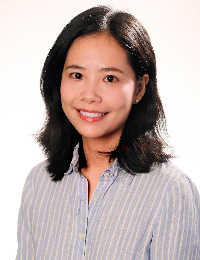 Chaoran Huang received the Ph.D. degree from the Chinese University of Hong Kong, Hong Kong, in 2016. She was a Postdoctoral Research Fellow at Princeton University, Princeton, NJ, USA, from 2017 to 2021. She is currently an Assistant Professor at the Chinese University of Hong Kong (CUHK), Hong Kong. She has wide research interests in optical computing, photonic integrated circuits, and optical communications. Her current research focuses on developing novel photonic devices, integrated circuits, and complementary algorithms for high-performance AI computing and information processing. She has been the co-chair and TPC member of several international conferences and is a frequent reviewer for different journals in IEEE, Optica, and the Nature Publishing Group. She was the recipient of the 2019 Rising Stars Women in Engineering Asia and Optica 20th Anniversary Challenge Prize.
Chaoran Huang received the Ph.D. degree from the Chinese University of Hong Kong, Hong Kong, in 2016. She was a Postdoctoral Research Fellow at Princeton University, Princeton, NJ, USA, from 2017 to 2021. She is currently an Assistant Professor at the Chinese University of Hong Kong (CUHK), Hong Kong. She has wide research interests in optical computing, photonic integrated circuits, and optical communications. Her current research focuses on developing novel photonic devices, integrated circuits, and complementary algorithms for high-performance AI computing and information processing. She has been the co-chair and TPC member of several international conferences and is a frequent reviewer for different journals in IEEE, Optica, and the Nature Publishing Group. She was the recipient of the 2019 Rising Stars Women in Engineering Asia and Optica 20th Anniversary Challenge Prize.
Lab webpage
Helena Junicke, PhD, Technical University of Denmark, Denmark
orcid.org/0000-0002-2513-2486
Research areas: Green chemical production, Mixed and pure culture fermentation, Process scale-up/down, Mechanistic and data-driven modeling, Thermodynamics, Process analytical technology
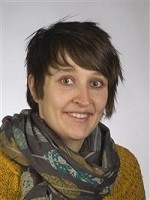 Assistant Prof. Dr. Helena Junicke leads a group in Fermentation Scale Translation (scale-up/scale-down) at the Technical University of Denmark and is an expert for the design and analysis of sustainable bio-processes with a particular focus on producing biofuels and high-value chemicals from various sources. Helena obtained her Master’s degree in Biochemistry from Free University Berlin and holds a PhD in Environmental Biotechnology from Delft University of Technology. During her PhD, she studied the fundamental kinetic and thermodynamic regulation of interspecies electron transfer during biogas formation. As Marie Skłodowska-Curie postdoctoral fellow (H.C. Ørsted Fellows Programme), she combined lab fermentations and advanced process simulations to elucidate green chemical production in mixed microbial cultures across scales. Helena has gained industry experience within several companies, including her own firm developing data science solutions for the bio-based industry.
Assistant Prof. Dr. Helena Junicke leads a group in Fermentation Scale Translation (scale-up/scale-down) at the Technical University of Denmark and is an expert for the design and analysis of sustainable bio-processes with a particular focus on producing biofuels and high-value chemicals from various sources. Helena obtained her Master’s degree in Biochemistry from Free University Berlin and holds a PhD in Environmental Biotechnology from Delft University of Technology. During her PhD, she studied the fundamental kinetic and thermodynamic regulation of interspecies electron transfer during biogas formation. As Marie Skłodowska-Curie postdoctoral fellow (H.C. Ørsted Fellows Programme), she combined lab fermentations and advanced process simulations to elucidate green chemical production in mixed microbial cultures across scales. Helena has gained industry experience within several companies, including her own firm developing data science solutions for the bio-based industry.
Lab webpage
Janise McNair, PhD, University of Florida, USA
orcid.org/0000-0002-0448-8723
Research areas: Internet of Things, 5G/6G wireless networks, secure wireless systems, smart grid communications
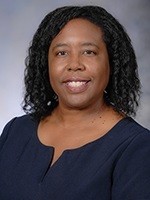 Dr. Janise McNair is an Associate Professor in the Department of Electrical & Computer Engineering at the University of Florida, where she leads the Wireless and Mobile (WAM) Systems Laboratory. Dr. McNair obtained her PhD in 2000 from the Georgia Institute of Technology, where she helped pioneer the field of multi-technology mobility management for next generation wireless systems. Currently, her research interests are Internet of Things, 5G/6G wireless systems, and creating secure, robust networked systems for a variety of novel application environments, including precision agriculture, food safety, construction site human safety, and smart grid security. Currently, Dr. McNair is a member of the Experts Group in Intelligence, Science and Technology for the US National Academies of Sciences Engineering and Medicine and a member of the leadership board of the UF Warren B. Nelms Institute for the Connected World.
Dr. Janise McNair is an Associate Professor in the Department of Electrical & Computer Engineering at the University of Florida, where she leads the Wireless and Mobile (WAM) Systems Laboratory. Dr. McNair obtained her PhD in 2000 from the Georgia Institute of Technology, where she helped pioneer the field of multi-technology mobility management for next generation wireless systems. Currently, her research interests are Internet of Things, 5G/6G wireless systems, and creating secure, robust networked systems for a variety of novel application environments, including precision agriculture, food safety, construction site human safety, and smart grid security. Currently, Dr. McNair is a member of the Experts Group in Intelligence, Science and Technology for the US National Academies of Sciences Engineering and Medicine and a member of the leadership board of the UF Warren B. Nelms Institute for the Connected World.
Lab webpage
Or Perlman, PhD, Tel Aviv University, Israel
orcid.org/0000-0002-3566-569X
Research areas: Medical Imaging, MRI, AI, Machine Learning, Cancer, Neurological Disorders, Neuroscience, Molecular Imaging
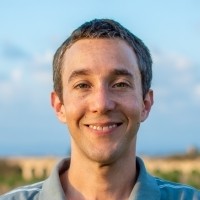 Dr. Or Perlman is a Senior Lecturer (Assistant Professor) at the Department of Biomedical Engineering and Sagol School of Neuroscience, Tel Aviv University (TAU), Israel. He received his BSc (Cum Laude) and MSc (Cum Laude) from Ben-Gurion University and his PhD from the Technion, Israel, all in Biomedical Engineering. Before TAU, He was a Postdoctoral Research Fellow at the Department of Radiology, Harvard Medical School, and Massachusetts General Hospital. Dr. Perlman is the head of the molecular MRI and translational machine intelligence (MOMENTUM) lab, which aims to develop clinically relevant molecular MRI methods for the early diagnosis and characterization of neurological diseases.
Dr. Or Perlman is a Senior Lecturer (Assistant Professor) at the Department of Biomedical Engineering and Sagol School of Neuroscience, Tel Aviv University (TAU), Israel. He received his BSc (Cum Laude) and MSc (Cum Laude) from Ben-Gurion University and his PhD from the Technion, Israel, all in Biomedical Engineering. Before TAU, He was a Postdoctoral Research Fellow at the Department of Radiology, Harvard Medical School, and Massachusetts General Hospital. Dr. Perlman is the head of the molecular MRI and translational machine intelligence (MOMENTUM) lab, which aims to develop clinically relevant molecular MRI methods for the early diagnosis and characterization of neurological diseases.
Lab webpage
Damien Querlioz, PhD, Université Paris-Saclay, France
orcid.org/0000-0002-0295-1008
Research areas: nanoelectronics, spintronics, neuromorphic engineering
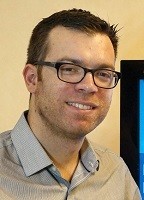 Damien Querlioz is a CNRS Researcher at the Centre de Nanosciences et de Nanotechnologies of Université Paris-Saclay. His research focuses on novel usages of emerging non-volatile memory and other nanodevices, in particular relying on inspirations from biology and machine learning. He received his predoctoral education at Ecole Normale Supérieure, Paris and his PhD from Université Paris-Sud in 2009. Before his appointment at CNRS, he was a Postdoctoral Scholar at Stanford University and at the Commissariat a l'Energie Atomique. Damien Querlioz is the coordinator of the interdisciplinary INTEGNANO research group, with colleagues working on all aspects of nanodevice physics and technology, from materials to systems. He is a member of the bureau of the French Biocomp research network. In 2016, he was the recipient of an ERC Starting Grant to develop the concept of natively intelligent memory. In 2017, he received the CNRS Bronze medal. He has also been a co-recipient of the 2017 IEEE Guillemin-Cauer Best Paper Award and of the 2018 IEEE Biomedical Circuits and Systems Best Paper Award.
Damien Querlioz is a CNRS Researcher at the Centre de Nanosciences et de Nanotechnologies of Université Paris-Saclay. His research focuses on novel usages of emerging non-volatile memory and other nanodevices, in particular relying on inspirations from biology and machine learning. He received his predoctoral education at Ecole Normale Supérieure, Paris and his PhD from Université Paris-Sud in 2009. Before his appointment at CNRS, he was a Postdoctoral Scholar at Stanford University and at the Commissariat a l'Energie Atomique. Damien Querlioz is the coordinator of the interdisciplinary INTEGNANO research group, with colleagues working on all aspects of nanodevice physics and technology, from materials to systems. He is a member of the bureau of the French Biocomp research network. In 2016, he was the recipient of an ERC Starting Grant to develop the concept of natively intelligent memory. In 2017, he received the CNRS Bronze medal. He has also been a co-recipient of the 2017 IEEE Guillemin-Cauer Best Paper Award and of the 2018 IEEE Biomedical Circuits and Systems Best Paper Award.
Personal webpage
Jordan Raney, PhD, University of Pennsylvania, USA
orcid.org/0000-0001-5329-9980
Research areas: mechanical metamaterials, advanced manufacturing, nonlinear dynamics
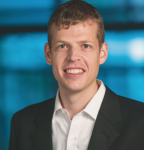 Prof. Jordan Raney is a member of the faculty in the Department of Mechanical Engineering and Applied Mechanics at the University of Pennsylvania. His research group is primarily experimental, and focuses on advanced manufacturing techniques, nonlinear dynamics of mechanical metamaterials, and failure of composites and structures. He holds bachelors degrees in physics and computer science from the University of Minnesota and master's and PhD degrees in materials science from Caltech.
Prof. Jordan Raney is a member of the faculty in the Department of Mechanical Engineering and Applied Mechanics at the University of Pennsylvania. His research group is primarily experimental, and focuses on advanced manufacturing techniques, nonlinear dynamics of mechanical metamaterials, and failure of composites and structures. He holds bachelors degrees in physics and computer science from the University of Minnesota and master's and PhD degrees in materials science from Caltech.
Lab webpage
Reza Razzaghi, PhD, Monash University, Australia
orcid.org/0000-0003-1143-8334
Research areas: Smart grids, power systems, Distributed Energy Resources
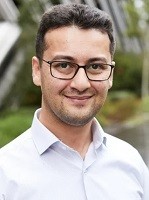 Reza received his Ph.D. degree from the École Polytechnique Fédérale de Lausanne (EPFL), Lausanne, Switzerland, in 2016. He is currently an Assistant Professor in the Electrical and Computer Systems Engineering department at Monash University. His research aims to develop smart grid solutions to efficiently deliver sustainable, economic and secure electricity supply. His research team is particularly interested in the integration of distributed energy resources (DERs) in power networks, monitoring and visibility of power networks, and power system protection. Dr. Razzaghi has been the recipient of multiple prestigious awards including the 2019 Best Paper Award of the IEEE Transactions on Electromagnetic Compatibility and the IEEE Power and Energy Society Basil Papadias Award.
Reza received his Ph.D. degree from the École Polytechnique Fédérale de Lausanne (EPFL), Lausanne, Switzerland, in 2016. He is currently an Assistant Professor in the Electrical and Computer Systems Engineering department at Monash University. His research aims to develop smart grid solutions to efficiently deliver sustainable, economic and secure electricity supply. His research team is particularly interested in the integration of distributed energy resources (DERs) in power networks, monitoring and visibility of power networks, and power system protection. Dr. Razzaghi has been the recipient of multiple prestigious awards including the 2019 Best Paper Award of the IEEE Transactions on Electromagnetic Compatibility and the IEEE Power and Energy Society Basil Papadias Award.
Personal webpage
Alessandro Rizzo, PhD, Politecnico di Torino, Italy
orcid.org/0000-0002-2386-3146
Research areas: Complex networks and systems, modeling and control of complex and nonlinear systems, epidemic models, cooperative and networked robotics
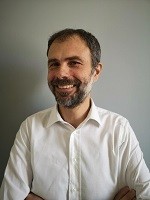
Lab webpage
Liwen Sang, PhD, National Institute of Materials Science, Japan
orcid.org/0000-0003-0946-1025
Research areas: MEMS/NEMS, semiconductor, optoelectronic devices, thermal management.
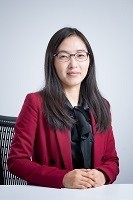 Liwen Sang is an Independent Scientist at the International Center for Materials Nanoarchitectonics, National Institute for Materials Science (NIMS), Japan. She completed her Ph.D in Semiconductor Physics at Peking University, then joined NIMS as a postdoctoral researcher. In 2014, She obtained the permanent position in NIMS as the Independent Scientist. She was also supported by the Precursory Research for Embryonic Science and Technology (PRESTO) at Japan Science and Technology Agency (JST), and as the PRESTO researcher from 2012 to 2016, and 2019-2023. Her research focuses on the interface engineering of III-V nitride semiconductors, optoelectronic devices, and MEMS/NEMS devices.
Liwen Sang is an Independent Scientist at the International Center for Materials Nanoarchitectonics, National Institute for Materials Science (NIMS), Japan. She completed her Ph.D in Semiconductor Physics at Peking University, then joined NIMS as a postdoctoral researcher. In 2014, She obtained the permanent position in NIMS as the Independent Scientist. She was also supported by the Precursory Research for Embryonic Science and Technology (PRESTO) at Japan Science and Technology Agency (JST), and as the PRESTO researcher from 2012 to 2016, and 2019-2023. Her research focuses on the interface engineering of III-V nitride semiconductors, optoelectronic devices, and MEMS/NEMS devices.
Lab webpage
Liangfei Tian, PhD, Zhejiang University, China
orcid.org/0000-0003-4340-2598
Research areas: soft matter engineering, acoustic engineering
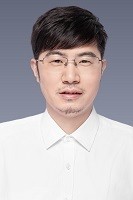 Dr. Tian is now an assistant professor in department of biomedical engineering, and a fellow of “100 Talent Program” at Zhejiang University. Dr. Tian did his bachelor studies at Lanzhou University (China), master studies at Nanjing University (China). He then earned his PhD in department of materials at ETH Zürich (Switzerland), and worked in Universität Konstanz (Germany) and University of Bristol (UK) as a Postdoc researcher. In the past, Dr. Tian has been involved several research projects in the field of biology-inspired functional materials. In Zhejiang University, Dr. Tian’s research focuses on the development biological-inspired chemical system for biomedical applications.
Dr. Tian is now an assistant professor in department of biomedical engineering, and a fellow of “100 Talent Program” at Zhejiang University. Dr. Tian did his bachelor studies at Lanzhou University (China), master studies at Nanjing University (China). He then earned his PhD in department of materials at ETH Zürich (Switzerland), and worked in Universität Konstanz (Germany) and University of Bristol (UK) as a Postdoc researcher. In the past, Dr. Tian has been involved several research projects in the field of biology-inspired functional materials. In Zhejiang University, Dr. Tian’s research focuses on the development biological-inspired chemical system for biomedical applications.
Personal webpage
Jianhua (Joshua) Tong, PhD, Clemson University, USA
orcid.org/0000-0002-0684-1658
Research areas: Energy Materials, Energy Devices, Hydrogen Production, Advanced Manufacturing, Laser Processing
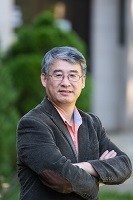 Joshua Tong is an associate professor in the Department of Materials Science and Engineering, Clemson University. He earned his Ph.D. in Physical Chemistry at the Dalian Institute of Chemical Physics (CAS) in 2002. Before joining Clemson, he worked in the sustainable clean energy field for about 15 years at the Research Institute of Innovative Technology for the Earth, National Institute of Advanced Industrial Science and Technology, University of Cincinnati, California Institute of Technology, and the Colorado School of Mines. Dr. Tong is leading the Sustainable Clean Energy Laboratory (SCEL) at Clemson. His research focuses on the creation, synthesis, understanding, and engineering of energy materials (e.g., solid state ionics) and the design, fabrication, and demonstration of energy devices (e.g., fuel cells, electrolysis cells, membrane reactors, solid state batteries, thermochemical reactors, and electrochemical sensors). His interested methodologies are additive manufacturing (3D printing), laser processing, reactive sintering, cold sintering, electrochemical synthesis, and additive-assisted synthesis. His interested applications are hydrogen and electricity production, solar fuels production, sustainable ammonia synthesis, natural gas/biogas to value-added chemicals, and carbon dioxide capture/utilization.
Joshua Tong is an associate professor in the Department of Materials Science and Engineering, Clemson University. He earned his Ph.D. in Physical Chemistry at the Dalian Institute of Chemical Physics (CAS) in 2002. Before joining Clemson, he worked in the sustainable clean energy field for about 15 years at the Research Institute of Innovative Technology for the Earth, National Institute of Advanced Industrial Science and Technology, University of Cincinnati, California Institute of Technology, and the Colorado School of Mines. Dr. Tong is leading the Sustainable Clean Energy Laboratory (SCEL) at Clemson. His research focuses on the creation, synthesis, understanding, and engineering of energy materials (e.g., solid state ionics) and the design, fabrication, and demonstration of energy devices (e.g., fuel cells, electrolysis cells, membrane reactors, solid state batteries, thermochemical reactors, and electrochemical sensors). His interested methodologies are additive manufacturing (3D printing), laser processing, reactive sintering, cold sintering, electrochemical synthesis, and additive-assisted synthesis. His interested applications are hydrogen and electricity production, solar fuels production, sustainable ammonia synthesis, natural gas/biogas to value-added chemicals, and carbon dioxide capture/utilization.
Lab webpage
Shunan Wu, PhD, Sun Yat-sen University, China
orcid.org/0000-0003-4644-569X
Research areas: spacecraft dynamics and control, space robot, in-space servicing and assembly, robust and nonlinear control
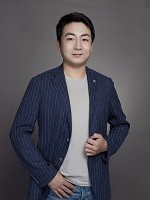 Dr. Shunan Wu is an associate professor in the School of Aeronautics and Astronautics at Sun Yat-sen University (SYSU), China. He received the Ph.D. degree in aerospace engineering at Harbin Institute of Technology, China, including a one-year exchange in University of Glasgow, UK. Before joining SYSU, he worked as an associate professor at Dalian University of Technology, China. His research interests include spacecraft dynamics and control, space robot, space mission design and optimization, in-space servicing and assembly, robust and nonlinear control, and machine learning. He is the author of more than 60 papers on international journals and conference proceedings, and is the editorial board member of other two academic journals. Dr. Wu has been the recipient of multiple prestigious awards and honorary titles, such as Natural Science Academic Achievement Award of Liaoning Province, Outstanding Reviewer of Aerospace Science and Technology, Best Conference Paper Award of 4th Deployable Space Structures Conference, and etc.
Dr. Shunan Wu is an associate professor in the School of Aeronautics and Astronautics at Sun Yat-sen University (SYSU), China. He received the Ph.D. degree in aerospace engineering at Harbin Institute of Technology, China, including a one-year exchange in University of Glasgow, UK. Before joining SYSU, he worked as an associate professor at Dalian University of Technology, China. His research interests include spacecraft dynamics and control, space robot, space mission design and optimization, in-space servicing and assembly, robust and nonlinear control, and machine learning. He is the author of more than 60 papers on international journals and conference proceedings, and is the editorial board member of other two academic journals. Dr. Wu has been the recipient of multiple prestigious awards and honorary titles, such as Natural Science Academic Achievement Award of Liaoning Province, Outstanding Reviewer of Aerospace Science and Technology, Best Conference Paper Award of 4th Deployable Space Structures Conference, and etc.
Lab webpage
Narges Yaghoobi Nia, PhD, Sapienza University of Rome, Italy, and EPFL, Switzerland
orcid.org/0000-0001-6851-5156
Research areas: Photovoltaics, perovskite solar module and panel, aerospace engineering, semiconductors, conjugated polymers, electrochemistry, printed electronics
 Narges Yaghoobi Nia holds Ph.D. in Electronics Engineering in 2017.She was awarded in 2014 a MARIE CURIE Fellowship as a part of the EU-funded project (Destiny FP7/2007–2013). She is founder of the PVSPACE Organisation. She is currently Principal investigator of P4SPACE project in Aerospace Engineering School of Sapienza University of Rome, Italy and EPFL University in Lausanne, Switzerland. She was member, key Person and task leader of VIPERLAB project (EU Horizon 2020 research and innovation programme). She has also the role of Communication Manager in the NEXTCCUS project (Next Generation Electrochemical System for Sustainable Direct CO2 Capture and Utilization/Storage as Clean Solar Fuel) ERA-NET ACT 2021. She is also Scientific responsible of CHOH – D project (Italian industrial project for CO2 reduction) in Italy. . She was an Assistant Professor in the Department of Electronics Engineering, University of Rome Tor Vergata. She has more than 11 years’ experience in the fields of emerging thin film PVs (especially perovskite solar cells/modules, tandem solar Module for terrestrial and aerospace applications) and electrochemistry of polymeric layers. She was a member of ESPRESSO, ENEA, PRIN and PERSEO projects and collaborator for the ASI (Italian Space Agency) projects. She published more than 50 scientific papers in international journals, books and chapters in addition to two patents relevant to perovskite PVs and electrochemical reactors. She has expertise for organizing the conferences and workshops e.g. PVSPACE-23, PVSPACE-2022 conference and PEROSPACE-2022 workshop relevant to photovoltaics for space applications.
Narges Yaghoobi Nia holds Ph.D. in Electronics Engineering in 2017.She was awarded in 2014 a MARIE CURIE Fellowship as a part of the EU-funded project (Destiny FP7/2007–2013). She is founder of the PVSPACE Organisation. She is currently Principal investigator of P4SPACE project in Aerospace Engineering School of Sapienza University of Rome, Italy and EPFL University in Lausanne, Switzerland. She was member, key Person and task leader of VIPERLAB project (EU Horizon 2020 research and innovation programme). She has also the role of Communication Manager in the NEXTCCUS project (Next Generation Electrochemical System for Sustainable Direct CO2 Capture and Utilization/Storage as Clean Solar Fuel) ERA-NET ACT 2021. She is also Scientific responsible of CHOH – D project (Italian industrial project for CO2 reduction) in Italy. . She was an Assistant Professor in the Department of Electronics Engineering, University of Rome Tor Vergata. She has more than 11 years’ experience in the fields of emerging thin film PVs (especially perovskite solar cells/modules, tandem solar Module for terrestrial and aerospace applications) and electrochemistry of polymeric layers. She was a member of ESPRESSO, ENEA, PRIN and PERSEO projects and collaborator for the ASI (Italian Space Agency) projects. She published more than 50 scientific papers in international journals, books and chapters in addition to two patents relevant to perovskite PVs and electrochemical reactors. She has expertise for organizing the conferences and workshops e.g. PVSPACE-23, PVSPACE-2022 conference and PEROSPACE-2022 workshop relevant to photovoltaics for space applications.
Lab webpage
Jiangong Zhu, PhD, Tongji University, China
orcid.org/0000-0002-3780-4286
Research areas: electric vehicles; lithium-ion batteries; battery degradation; lifetime management; state estimation; battery modeling;
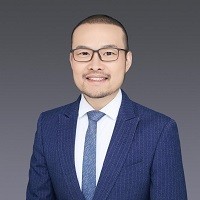 Dr. Jiangong Zhu is an Associate Professor in the School of Automotive Studies at Tongji University, China. He received the Ph.D. degree in automotive engineering at Tongji University. He was a Post-Doctoral Researcher at the Institute for Applied Materials at the Karlsruhe Institute of Technology (KIT) in Germany. He is a “Humboldtians” Fellow from the support of Humboldt Foundation and a DAAD (Deutscher Akademischer Austausch Dienst) fellow. His research interests include electric vehicles, lithium-ion batteries, battery lifetime and safety management, state estimation, and battery modeling. His current research focus is on applying the ex-situ (post-mortem analysis) and in-situ methods (e.g., impedance, neutron powder diffraction) to investigate the battery degradation, and inventing new science methods (e.g., machine learning and optimization) to prognose the battery state of health and manage the power battery lifespan. His research has been sponsored by National Natural Science Foundation of China and awarded “Shanghai Overseas High-Level Talent Recruitment Program” in 2021.
Dr. Jiangong Zhu is an Associate Professor in the School of Automotive Studies at Tongji University, China. He received the Ph.D. degree in automotive engineering at Tongji University. He was a Post-Doctoral Researcher at the Institute for Applied Materials at the Karlsruhe Institute of Technology (KIT) in Germany. He is a “Humboldtians” Fellow from the support of Humboldt Foundation and a DAAD (Deutscher Akademischer Austausch Dienst) fellow. His research interests include electric vehicles, lithium-ion batteries, battery lifetime and safety management, state estimation, and battery modeling. His current research focus is on applying the ex-situ (post-mortem analysis) and in-situ methods (e.g., impedance, neutron powder diffraction) to investigate the battery degradation, and inventing new science methods (e.g., machine learning and optimization) to prognose the battery state of health and manage the power battery lifespan. His research has been sponsored by National Natural Science Foundation of China and awarded “Shanghai Overseas High-Level Talent Recruitment Program” in 2021.
Lab webpage
